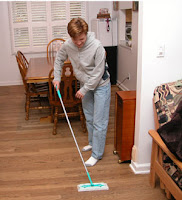Archivo de la categoría: Sin categoría
Solución del ejercicio sobre Adverbios de Frecuencia I
Exercises: Adverbs of Frequency (Adverbios de Frecuencia)
Si ya has comprendido el uso de los adverbios de modo y de lugar hoy te proponemos que comiences a ejercitar sobre los adverbios de frecuencia y para ello te ofrecemos algunas frases para que reordenes las palabras que las componen en su posición correcta:
Solución del ejercicio sobre Adverbios de Modo I
Para que puedas comprobar si has realizado este ejercicio sobre Adverbs (Adverbios) en la forma correcta aquí te ofrecemos la solución. Recuerda que debías reordenar las frases colocando los adverbios de modo en su posición correspondiente:
Solución del ejercicio sobre Adverbios de Lugar II
Hoy te entregamos la solución del ejercicio sobre Adverbs (Adverbios) en el cual debías reordenar las oraciones con adverbios de lugar en su posición correcta:
Solución del ejercicio sobre Adverbios de Modo II
Verifica con la solución que hoy te ofrecemos, que hayas reordenado las oraciones colocando el adverbio de modo en su posición correspondiente:
Usos del Caso Genitivo o Posesivo
Días atrás les proponíamos aprender uno de los recursos gramaticales de uso frecuente en el idioma inglés: el Caso Posesivo o Genitivo. Hoy veremos algunas de las situaciones que permiten su utilización:
1. Con personas, sustantivos propios o pronombres personales indefinidos:
(El bolso de Jennifer)
The boy’s name
(El nombre del muchacho)
Somebody’s opinion
(La opinión de alguien)
2. Con el nombre de animales:
(Las alas de la paloma)
A tortoise’s shell
(Una caparazón de tortuga)
The giraffe’s neck
(El cuello de la jirafa)
3. También se utiliza con expresiones de tiempo, distancia, peso, valor, volumen, capacidad y otras medidas:
(Una libra de algodón)
Yesterday’s weather
(El clima de ayer)
A forty five litres’ tank
(Un tanque de cuarenta y cinco litros)
4. Se puede usar con objetos dignificados y nombres geográficos o institucionales:
(El tráfico de Barcelona)
The world’s problems
(Los problemas del mundo)
The National Museum’s collection
(La colección del Museo Nacional)
Posición de los Adverbios en una oración
Ya hemos aprendido acerca de los Adverbios y hoy les proponemos conocer como se ubican en una oración cuando utilizamos más de uno de ellos. Por lo general el orden de los adverbios es el siguiente:
| Adverbio de Modo | Adverbio de Lugar | Adverbio de tiempo |
Sally read the lesson slowly in her room yesterday.
Sally leyó la lección lentamente in su habitación ayer.
| SLOWLY | IN HER ROOM | YESTERDAY |
| Adverbio de Modo | Adverbio de Lugar | Adverbio de tiempo |
Cabe señalar que los adverbios de tiempo pueden ir colocados también al comienzo de la oración, por ejemplo:
- Cuando en la oración existen dos o más adverbios de tiempo o lugar, primero se colocan las unidades más cortas, más pequeñas y más exactas, por ejemplo:
Yo vivía en una pequeña casa en una hermosa área de Londres.
- Los adverbios de frecuencia que se expresan a través de una sola palabra se colocan antes del verbo principal y después del verbo TO BE, por ejemplo:
We normally go to work by bus.
Nosotros normalmente vamos a trabajar en autobus.
Sam is always late for work.
Sam siempre está retrasado para el trabajo.
- Los adverbios de frecuencia compuestos por dos o más palabras se colocan generalmente al final de la oración y antes de los adverbios que denotan posición en el tiempo, por ejemplo:
Mis amigos van al río todos los días en verano.
Exercises: Adverbs of Manner (Adverbios de Modo)
Comenzamos a entregar algunos ejercicios sobre el tema aprendido últimamente: Adverbs (Adverbios). En esta oportunidad ofrecemos oraciones desordenadas que contienen adverbios de modo y las cuales debes reescribir en su orden correcto. Recuerda colocar el adverbio en su posición correspondiente:
Adverbios
En la entrega de hoy les ofrecemos un tema que en muchas ocasiones suele suscitar confusión: los adverbios. Estas palabras o frases están cercanamente conectadas con el verbo en una oración. Mientras un verbo describe la acción o el estado de cosas o personas, un adverbio añade información acerca de la manera, lugar y tiempo en que se realiza. Losadverbios responden a las siguientes preguntas:
| HOW? | ¿Cómo? |
| WHERE? | ¿Dónde? |
| WHEN? | ¿Cuándo? |
| HOW OFTEN? | ¿Con qué frecuencia? |
Por ejemplo:
The layers usually work slowly in the building during the afternoon.
Los obreros usualmente trabajan lentamente en el edificio durante la tarde.
| How do they work? | Slowly ( Lentamente) Adverbio de modo |
| Where do they work? | In the building (En el edificio) Adverbio de lugar |
| When do they work? | During the afternoon (Durante la tarde) Adverbio de tiempo |
| How often do they work? | Usually (Usualmente) Adverbio de frecuencia |
- Una sola palabra, por ejemplo:
| VERY | Muy |
| SELDOM | Raramente |
| NEVER | Nunca |
| ALWAYS | Siempre |
| TOMORROW | Mañana |
- Una frase preposicional, por ejemplo:
| ON THE ROAD | En el camino |
| BY TRAIN | En tren |
| BY CHANCE | Por casualidad |
| AT NIGHT | En la noche |
- Una frase sin preposición, por ejemplo:
| EVERY DAY | Todos los días |
| LAST NIGHT | Anoche |
| TOMORROW MORNING | Mañana a la mañana |
| THE FOLLOWING DAY | Al día siguiente |
- Una cláusula, por ejemplo:
| WHEN SHE ARRIVED | Cuando ella llegó |
| AS SOON AS HE HAS FINISHED | Tan pronto como él haya terminado |
| WHILE I WAS PLAYING | Mientras yo estaba jugando |









